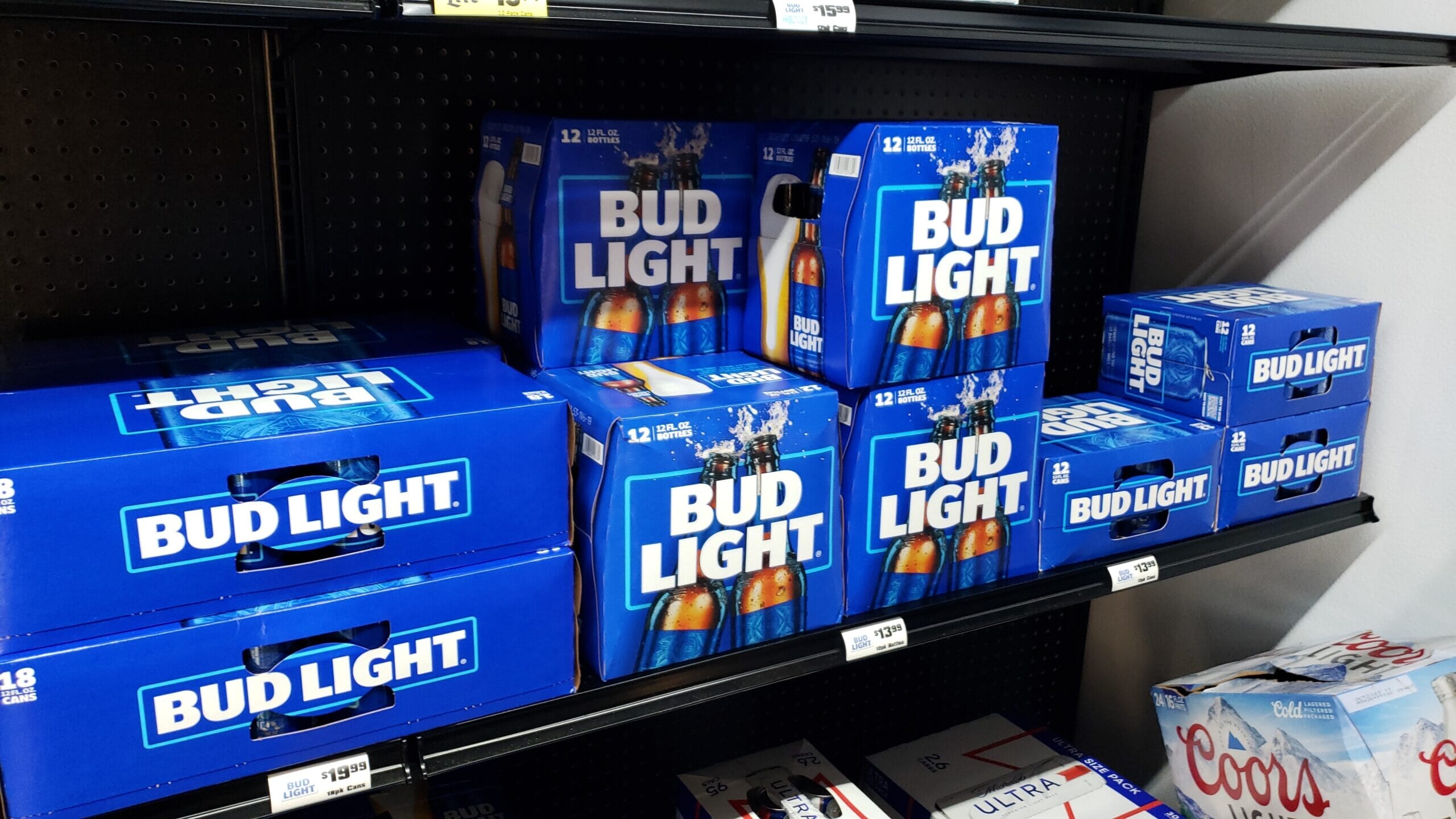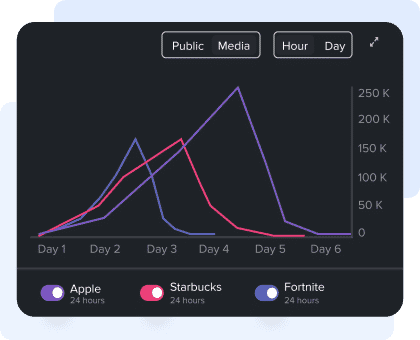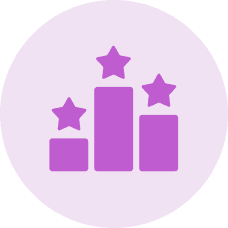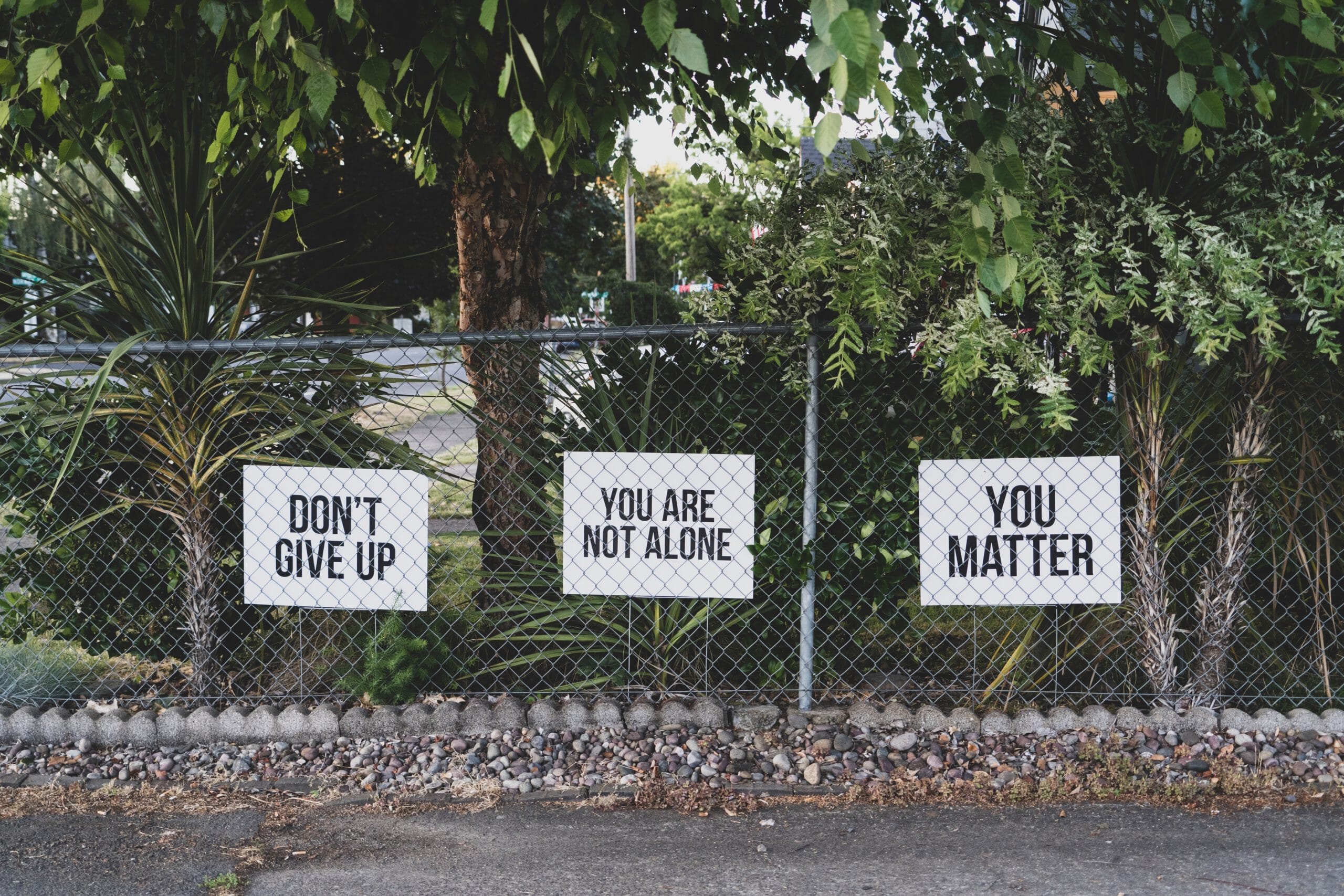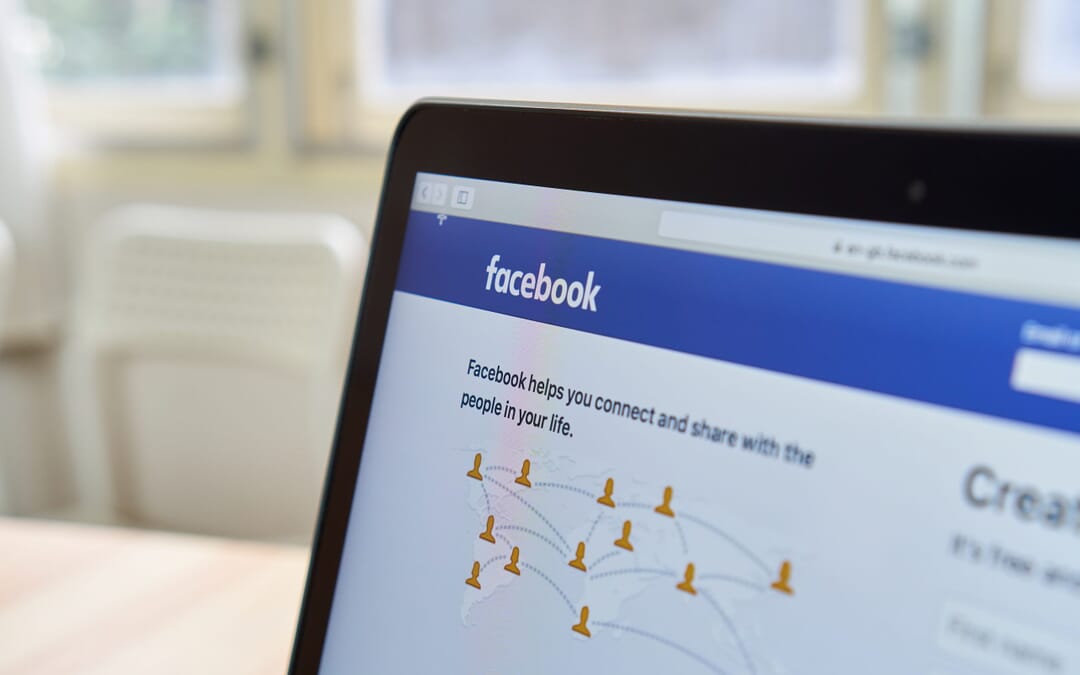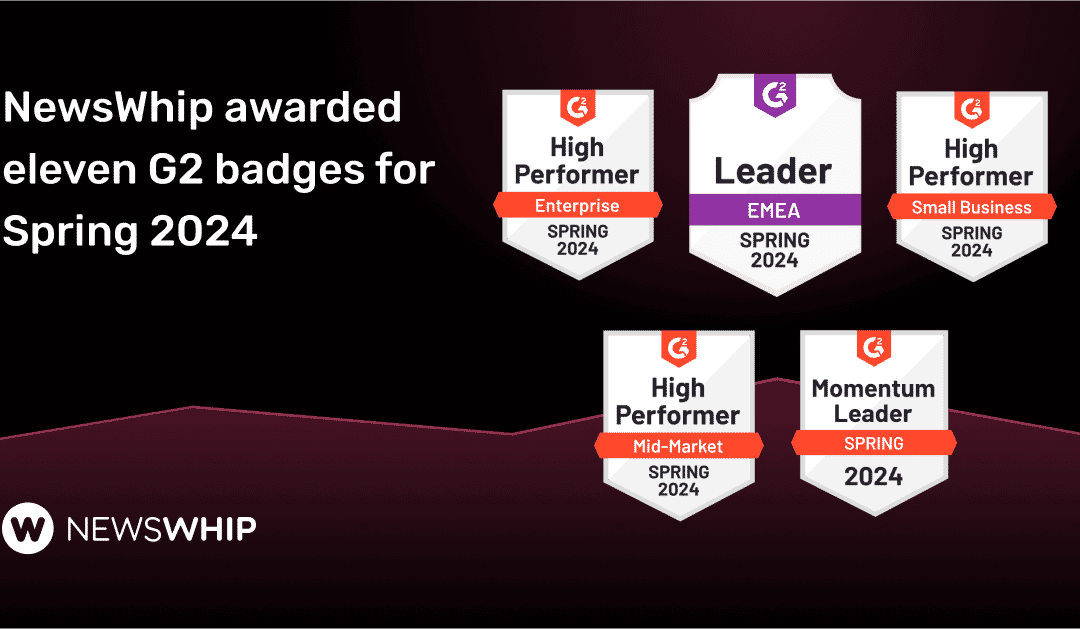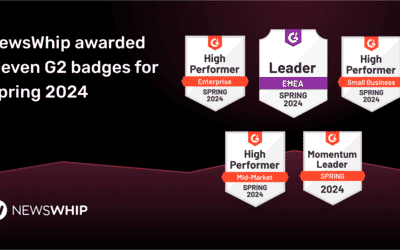May is mental health month, and it is a particularly pertinent time for it given the potential disruption to our mental health by the COVID-19 pandemic. We looked back at some of the top mental health and coronavirus narratives of the year so far.
These included mental health broadly, how COVID-19 has impacted mental health conversations, and who has been stepping up to help people with their mental wellbeing in a time of crisis.
Let’s begin with the broad narratives.
Mental health and coronavirus engagement
There was a significant uptick in engagement to mental health content when coverage of the pandemic reached stratospheric levels at the beginning of March. The graph below shows that bump the week of March 8th, where mental health mentions alongside the virus was responsible for more than half of the total engagement to mental health articles for the week. It has remained at roughly the same ratio for the duration of the pandemic, as coronavirus has dominated almost all news engagement.
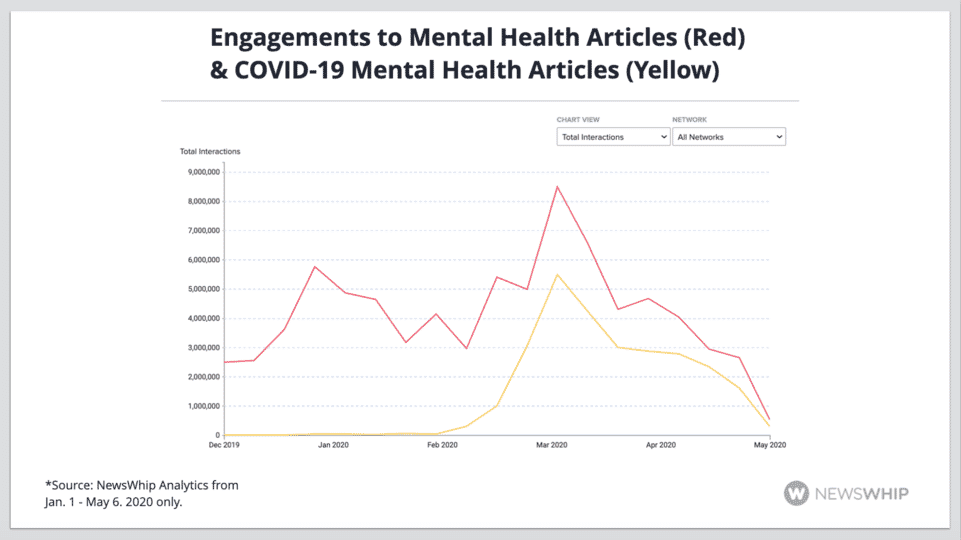
So, as we can see, mental health and coronavirus content has been a key driver of engagement for the topic of mental health as a whole this year. But what exactly is that content? And where is it being written?
Mental health narratives in 2020
There has been a lot written about mental health so far this year. While much of this has been focused on COVID-19, there was also considerable engagement and coverage before the pandemic began.
This came across a variety of websites, as the chart below shows.
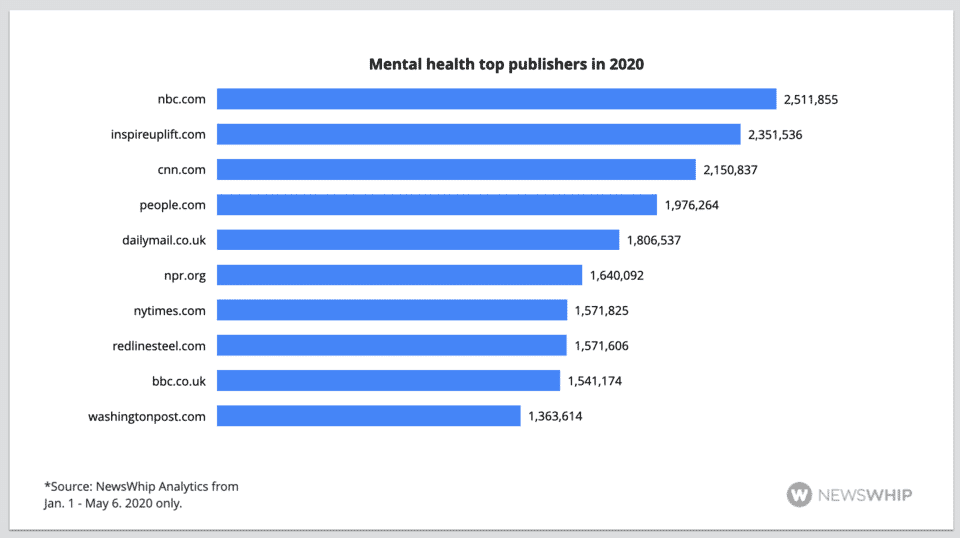
The most engaged of these were a mix of websites, though the top ten did contain a number of the larger publishers. The biggest of these was the NBC network, whose content about mental health has driven more than 2.5 million engagements this year so far.
Other publishers among the top ranked include Inspire Uplift, CNN, and People, all of whom have around 2 million engagements on the topic.
Looking at the top stories for the broad topic of mental health for the year, it is obvious why some of these lesser-known publishers appear in the top ten, with one or two highly successful articles driving up their overall numbers.
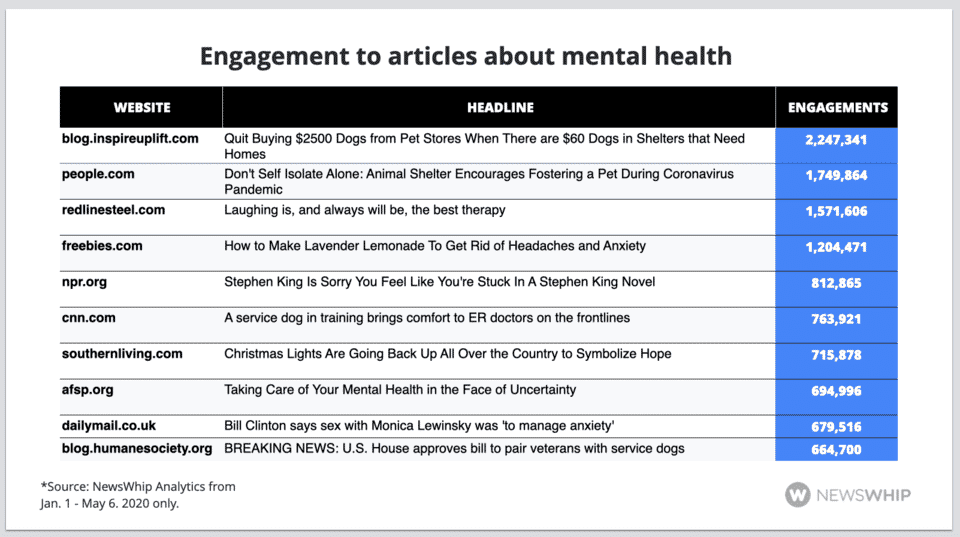
Animals, and how they help to manage anxiety, were a particular focus of the top mental health stories in general, with less than half of the top articles specifically about the pandemic.
It is perhaps more interesting, then, to specifically look at what has been written around mental health and coronavirus.
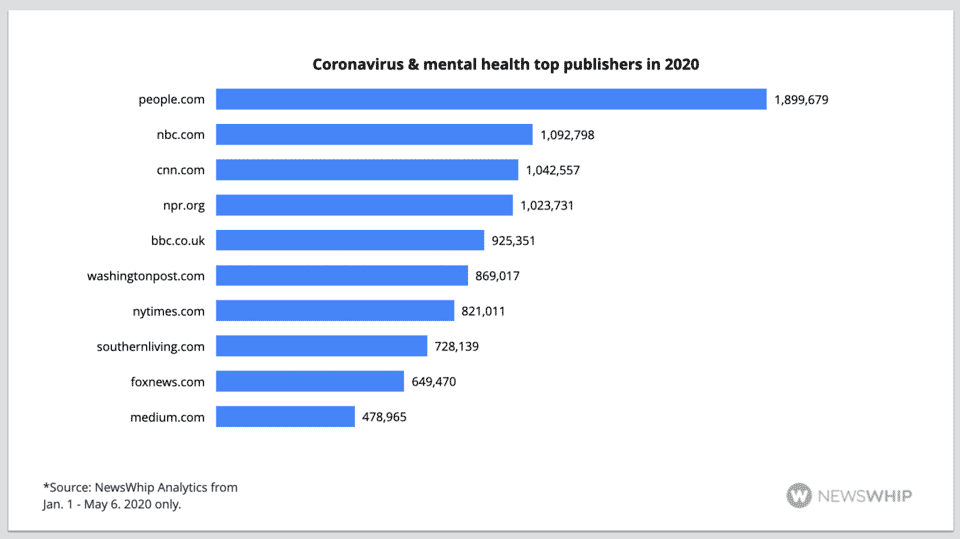
For publishers, the picture was even more mainstream than it was before. Although People was the most engaged publisher thanks to their one highly successful article, the rest of the top ten were all firmly in the mainstream, with NBC, CNN, NPR, and the BBC making up the rest of the top five.
When it came to the content, the top content was still a good deal of animal content specifically to do with the pandemic, with two articles about how dogs and other pets can help with anxiety during times of high stress.
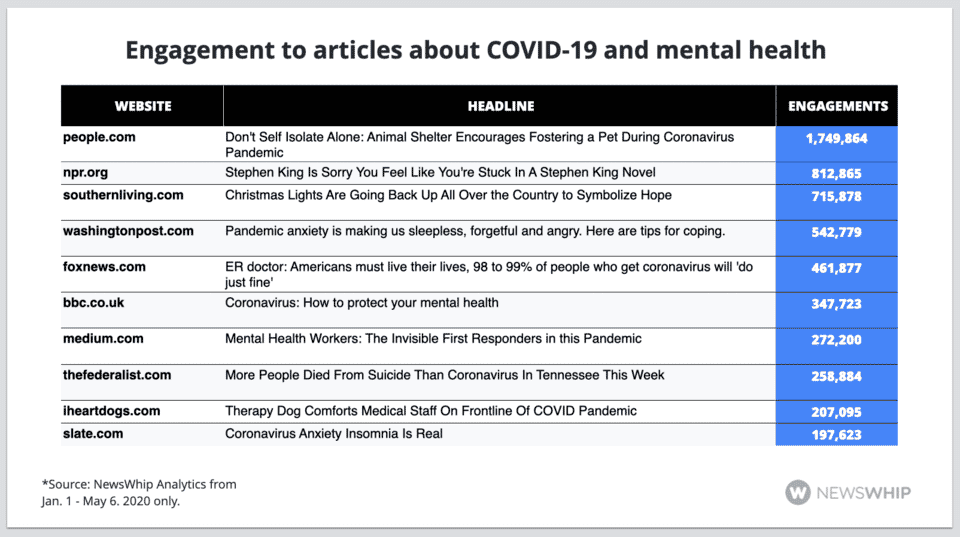
Other highly engaged articles praised mental health workers as the invisible first responders, and offered tips for coping with the increased stress, as seen in The Washington Post and Slate.
Helping mental wellbeing during COVID-19
This mental health crisis was approached in different ways, from the government, to brands and celebrities offering support, to publishers promoting exercise and tying physical health to mental health.
This year, help with mental health has been provided more broadly by governments even outside of coronavirus, with the majority of the below initiatives coming before the pandemic did. The Canadian government in particular initiated a number of highly engaged programs of support.
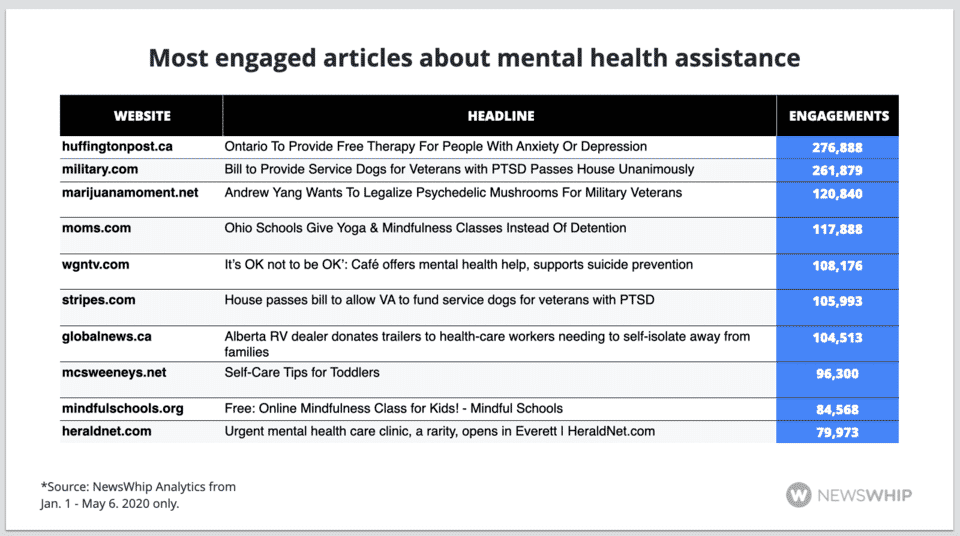
Ontario offered to provide free therapy for people with anxiety or depression, while an Alberta RV dealer donated trailers to healthcare workers in need.
There were also significant initiatives within the US, though these have not necessarily been to do with COVID-19. Bills have been passed to support veterans struggling with mental health, and Andrew Yang called for the legalization of psychedelic mushrooms as part of that support.
For brands and celebrities, COVID-19 was the catalyst that caused them to step up the most on the subject.
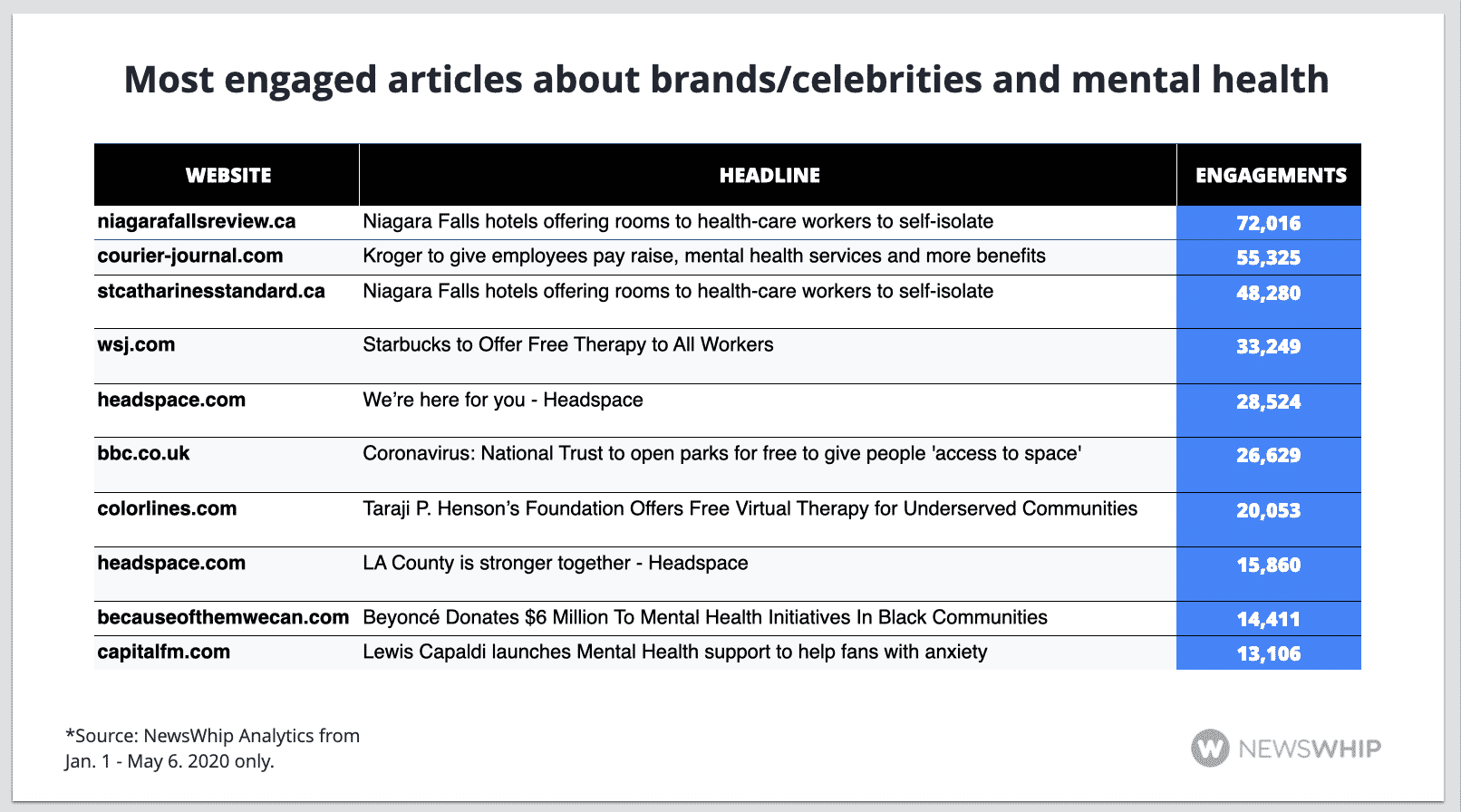
Hotels in Niagara Falls offering free rooms to healthcare workers was the most engaged piece, showing that one of the key ways to help is to provide helpful services for free. We also saw this for Headspace, who offered free access to their content to residents of some of the worst-hit areas, such as New York and LA County.
Another way brands helped was to simply look after their workers. Starbucks did this by offering free therapy to all of their workers, while Kroger offered a pay raise and mental health services to its essential workers.
For celebrities, the focus tended to be on making donations to worthy mental health causes. Taraji P. Henson, Beyonce, and Lewis Capaldi were all highly engaged examples of this.
How physical health can help
Beyond services to help people with their mental health, one key aspect that has been floated as a way to improve it is to also focus on physical health.
There have been a number of highly engaged articles on the benefits of this in major publications, including the New York Times and The Guardian.
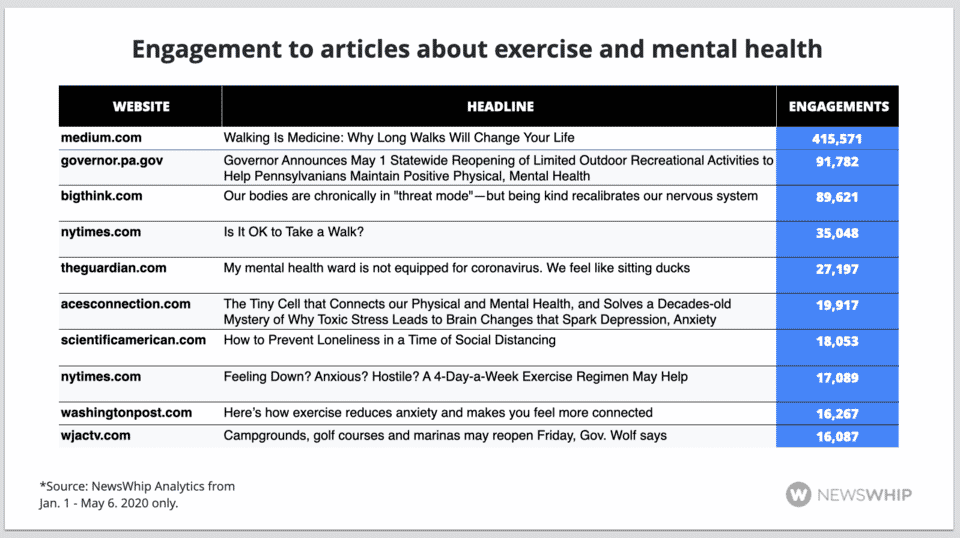
The most engaged article about the link actually dates from well before the pandemic, and was written in January, but has been widely shared since.
Other articles examine the benefits of exercise when it comes to mental health, with examples from many big publishers.
One brand that has been a part of this is Peloton.
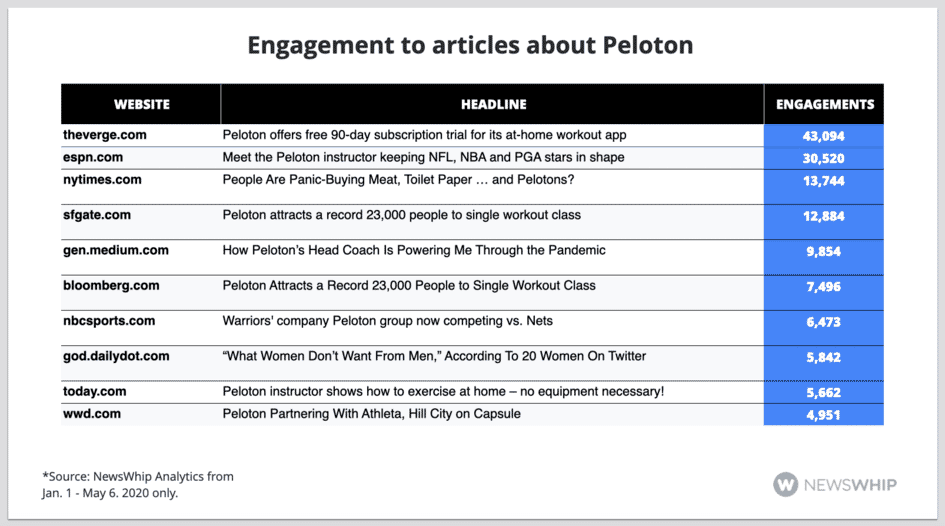
The at-home workout company offered 90-day subscriptions for free back at the start of lockdown, which saw it receive a huge amount of positive engagement and sign-ups, achieving record levels of people joining the live streamed classes towards the end of April.
As is evidenced from all of this, mental health has become a key topic of conversation, even more so than this time last year thanks to the coronavirus pandemic. There have been a number of different approaches to trying to improve mental health for people. These have ranged from exercise to support programs, to donations.
For brands, the most important thing is to do something that your brand has authority to do. The best way to act is to look after your workers, or if your brand can offer a product or service to its community at reduced or no cost, those things have proven to genuinely help people and have tended to be well received.
To track these kinds of stories yourself as they appear, take a tour of NewsWhip Spike.


